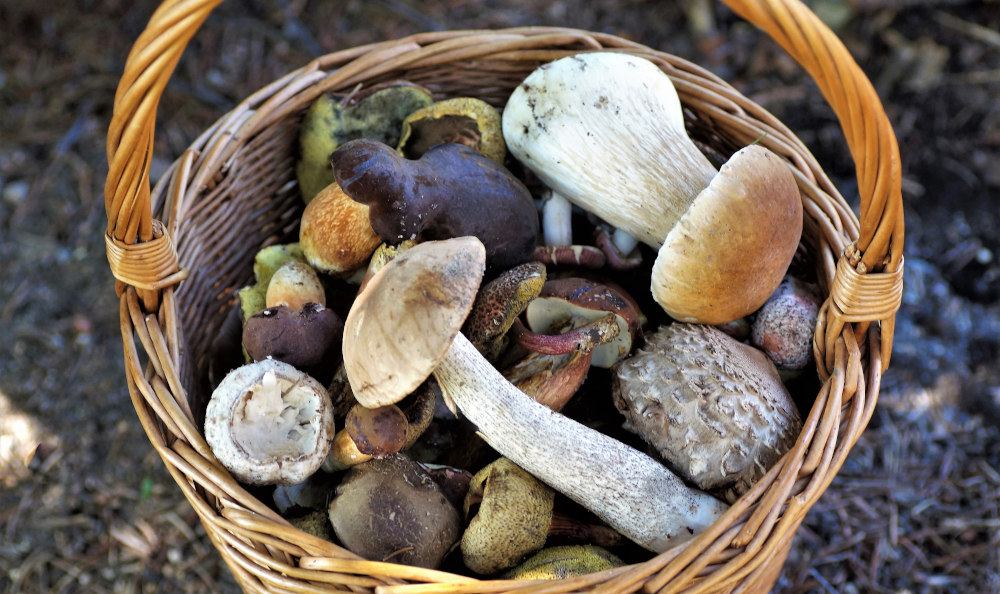
The Power of Fungi
The Power of Fungi
Humble mushrooms are powerhouses that can pack a nutritional punch as well as provide medicinal benefits. Nutritional therapist Yasmina Bona has the lowdown…
Mushrooms of all shapes and sizes have been seen as culinary delights since our early ancestors foraged for them, but rarely have they attracted the limelight as they do now. As it turns out, mushrooms are fascinating powerhouses of nutrients and compounds that provide many positive health benefits. A single type of mushroom can contain hundreds of beneficial bioactive substances.
Part of the Fungi kingdom, they build an underground web-like connection with branching threads, referred to as ‘the internet of nature’, creating a superhighway of information-sharing membranes that enables the flow of essential nutrients around this eco-system. Recognising this, modern research is now confirming the therapeutic properties of many mushroom species. To date, 14,000 species of mushrooms have been described and roughly 5% are estimated to be therapeutically useful. Modern science has discovered many health-promoting qualities in mushrooms including immunological activity, which includes anti-viral, anti-bacterial, and anti-parasitic actions.
So what are these compounds within mushrooms that specifically support the immune system? Large polysaccharide molecules called Beta-Glucans bind to different immune cell receptors, modulating (i.e. changing) your immune system to make it as efficient as possible. These fiber-like molecules work by triggering activity of key categories of immune cells, helping to mount an effective immune response to pathogens and other micro-organisms. Even more fascinating is the adaptability of these compounds: they help restore immunity in individuals whose immune system is compromised but also down-regulating an overactive immune response in individuals with auto-immune conditions. In other words, they either turn the volume up or down on the body’s immune response.
The following three therapeutic mushrooms merit a mention as they are particularly strong immunity modulators. They are: Reishi, Turkey Tail and the Royal Sun Agaric. Reishi, also known as the “Mushroom of Immortality” in Japan, promotes longevity and maintains vitality according to traditional medicine. It contains no less than 400 active compounds offering broadspectrum cardiovascular, neurological and immunological benefits. Turkey Tail has a woody, velvety fruit body with characteristic colours that resemble the tail of a turkey, hence its name. It enhances the natural immune response, and modulates the immune system in conditions such as autoimmune diseases. It also has strong antiviral properties. Royal Sun Agaric is a widely available fleshy, edible species with a sweet flavour and taste of almonds. Unique compounds in this mushroom modulate the histamine response in allergies. The concentration of active ingredients in this mushroom also strengthen the body’s defence mechanisms against infections.
A relatively new field of nutritional therapy named “mycotherapy” has emerged these last few years. Mycotherapy focuses on the research and development of mushrooms as nutritional supplements. Qualified practitioners offer these supplements in order to maintain and improve health as part of a complete lifestyle, nutritional and supplemental plan. It’s always an excellent idea to incorporate mushrooms in one’s diet – they’re rich in B vitamins and antioxidants – but in order to really reap the benefits of particular therapeutic mushrooms, it is easier to consume them in powder or supplement form (capsules) as they are more potent and bypass the digestive juices in the stomach. Adding a powder to a smoothie is an easy alternative.





